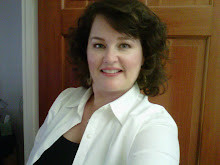Loss is a common experience. Everyone has experienced loss at some point, on some level, in their lives. I can imagine preaching several months' worth of sermons on the topic of loss/grief! There are numerous losses that are not literal, physical deaths: divorce, job loss, financial crisis, relocation, health crisis, etc. I was struck by something I read recently that asserted every loss is a death of sorts and we need to allow ourselves to grieve. I couldn't agree more. Indeed, grief is the normal, natural and necessary inner experience of loss. And in the best possible scenario, each person will grieve in a way that is normal and natural and necessary for their healing.
While it is quite interesting that some recent research has argued against the well-known stages of loss identified by Dr. Kubler-Ross: denial, anger, bargaining, depression, acceptance, what is important to remember is that it is possible to pass through each stage more than once, and even be in more than one stage at a time. Grief is not a cut and dry process. Grief is rarely neat and tidy; more often messy and complex. I love what Unitarian Universalist minister, Christine Robinson, says about grief - "Perhaps it's about finding a new normal."
I would posit that none of us can make it on our own, most especially in times of loss and grief. We need each other to help us keep things in perspective and remind us what matters most. This is a huge part of being in a religious community. I did say "religious" community, not a social club, neighborhood group, or other type of community, as worthwhile as all of those may be. Consider the definition of religion by a much respected Unitarian Universalist Statesman (my term of endearment for him) whose death just a few months ago deeply affected many people, the Rev. Forrest Church: "Religion is our human response to the dual reality of being alive and knowing we will die." Being part of a religious community such as the one that I am privileged to serve means engaging with each other in a process of responding to life, knowing that we won't have it forever. We are a community of faith - trust - that allows us to journey together in the questions, the uncertainty, love and hope.
While grieving is a journey, no one needs to be on that journey alone. Part of our healing is in the connection we experience with one another. The connection I speak of is an ability to lean on one another from time to time. In loss and grief there is a time to lean. Religious community is more than just a shoulder to cry on or a meal delivered. A religious community can give those things and encourage you to continue your journey.
There will undoubtedly come a time when each of us will lean and when each of us will in turn let others lean upon us. This is what it means to be fully human.
One of my dear seminary professors, the Rev. Dr. William Murry, has said, "To be human is to know loss, and, indeed the more fully human we are, the more loss we will know and the deeper we will feel the losses for the more we love and care, the more we have to lose.” Those who do not have the blessing of a religious community in their lives may not be cognizant of the reality that to be human – to be fully human – means knowing loss while realizing strength by the gift of leaning on one another. In this knowledge and in this experience there is joy.
That time I thought I could not go any closer to grief without dying
I went closer, and I did not die.
Surely God had His hand in this, as well as friends.
Still, I was bent, and my laughter, as the poet said, was nowhere to be found.
Then said my friend Daniel (brave even among lions),“It’s not the weight you carry but how you carry it – books, bricks, grief – it’s all in the way you embrace it, balance it, carry it when you cannot, and would not, put it down.”
So I went practicing. Have you noticed? Have you heard the laughter that comes, now and again, out of my startled mouth?
How I linger to admire, admire, admire the things of this world
that are kind, and maybe also troubled – roses in the wind, the sea geese on the steep waves, a love to which there is no reply? "
(written by poet Mary Oliver after the death of her partner of over forty years)
May we all find the courage to touch the center of our sorrow and be with it for the time it needs us to. May we all have faith that healing will come. May we grieve our losses and may we have the strength to lean.






No comments:
Post a Comment